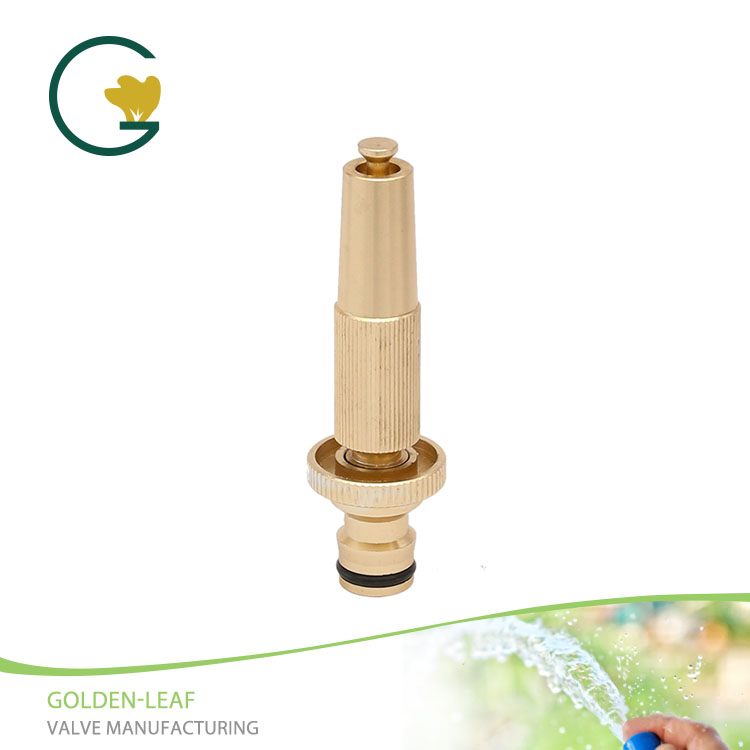Due to the unique properties of its materials, Aluminum Nozzle has significant advantages in specific application scenarios. The following is a systematic analysis of its characteristics and typical application areas:

Lightweight design: The density of aluminum (about 2.7 g/cm³) is significantly lower than that of stainless steel (about 8 g/cm³), which can greatly reduce the overall weight of the equipment and is suitable for weight-sensitive fields such as aviation and automobiles.
Excellent thermal conductivity: The thermal conductivity of aluminum is 237 W/m·K, which is far higher than that of stainless steel (about 15 W/m·K). It is suitable for scenarios that require rapid heat dissipation, such as electronic equipment cooling nozzles or internal combustion engine injection systems.
Processing economy: Aluminum has excellent ductility (elongation of about 10-30%), and can process complex flow channel structures at low cost, which is particularly suitable for customized low-flow precision spraying needs.
Environmental weather resistance: The naturally formed Al₂O₃ oxide film can resist atmospheric corrosion at 80% relative humidity, but the pH tolerance range is limited (pH 4.5-8.5 is recommended). Surface treatment is required in chloride ion-containing environments (such as seawater).
Temperature limitations: The upper limit of the operating temperature is limited by the solid solution temperature of 6061 aluminum alloy (about 530℃). It is recommended to be lower than 200℃ for long-term use and withstand 300℃ for short-term use.
Automobile manufacturing: Aluminum Nozzle can be used for fuel atomization nozzles in direct injection systems. The surface hardness is increased to 60 HB through T6 heat treatment (530℃ quenching + artificial aging) to meet the injection pressure requirement of 20 MPa.
Precision cooling system: In the supply of cutting fluid for CNC machine tools, anodized (film thickness 10-25μm) treated Aluminum Nozzle is used to achieve a surface finish of Ra 0.8μm and ensure uniform distribution of 0.1-0.3mm diameter droplets.
Agricultural plant protection equipment: The lightweight drone spraying system uses 7075Aluminum Nozzle, with a yield strength of 503 MPa, and a fan-shaped spray angle (80°-110°) to achieve 6-8 L/min flow control.
3D printing support technology: AlSi10Mg nozzle formed by selective laser melting (SLM) is used for powder spreading of metal printers, withstanding 300°C preheating bed temperature, porosity<0.5%.
Fire emergency equipment: The high-pressure air foam system (CAFS) uses 6061-T6 aluminum nozzles to achieve 0.3-0.7 foam expansion multiples and a working pressure range of 8-12 bar.
Surface strengthening: Micro-arc oxidation treatment can generate a 50-200μm ceramic layer with a hardness of 1500HV and a salt spray test resistance of 1000 hours; Composite process: Aluminum-based silicon carbide (SiC 20%) composite nozzle, the thermal expansion coefficient is reduced to 15×10⁻⁶/℃, suitable for thermal cycle conditions; Digital design: Flow channel optimization based on CFD simulation increases the flow coefficient Cv value to 0.98, which is 15% higher than the traditional design.
Under the conditions of medium temperature <150℃, no strong acid (pH>4) or strong alkali (pH<9) environment, and working pressure <25 MPa, Aluminum Nozzle achieves the best balance between cost (30-40% lower than stainless steel) and performance. For scenarios with higher technical requirements, it is recommended to use 7075-T6 alloy or surface modification solution.